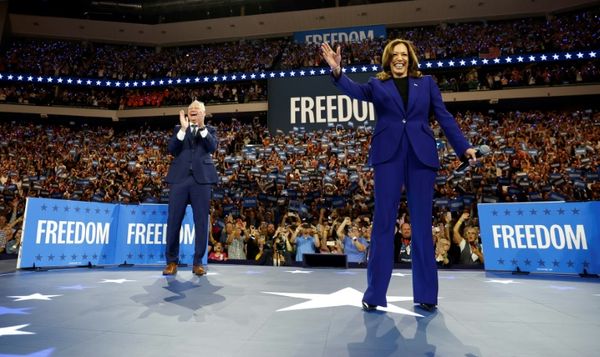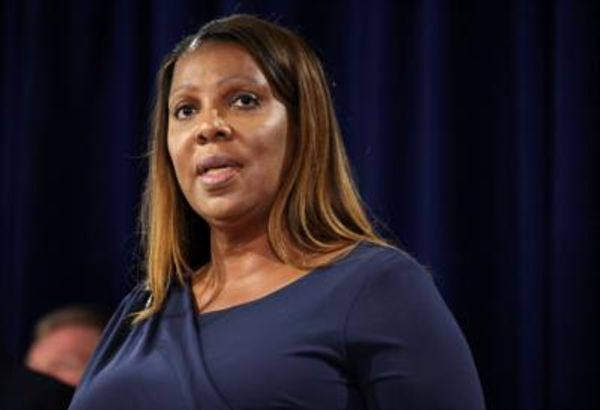
Italian-born chef Simone Zanoni is many things. Since September 2016, he’s headed up Michelin-starred Le George at Four Seasons Hotel George V, Paris, the only European hotel decorated with five Michelin stars (across three restaurants). He also recently penned a book titled “Mon Italie.” But the one thing he’s not? Predictable.

It’s the afternoon of March 28, and we’re scheduled to meet for an interview at Caprice in the Four Seasons Hong Kong. (Coincidentally, this property holds more Michelin stars than any hotel in the world, with a whopping eight.) Select Four Seasons chefs and mixologists, media, and celebrities descended upon the cosmopolitan city for the hospitality brand’s fourth Pop Down – a unique, invite-only event showcasing Four Seasons talent from all over the world – which was taking place the following evening. (Zanoni whipped up a positively pretty tomato Agnolotti del Plin for the special occasion.)
Caprice’s open kitchen is quietly abuzz as it prepares for dinner service. I’m not quite sure who to look for, but I notice a trim man with a tousle of curly hair, casually dressed in a black tee, ripped jeans, and sneakers. He’s exploring every nook of the elegant French restaurant with the wide eyes and boundless energy of a child.
As we get settled into one of Caprice’s private dining rooms, the conversation flows freely. Zanoni continues to be refreshingly exuberant and laid back – not the least bit stuffy or somber, unlike some of his culinary counterparts. Here, the chef reveals why sustainability is paramount at Le George, how he’s adapting to today’s younger generation of luxury travelers, and why he refuses to profit off of bottled water.

How did you come to work at the Four Seasons Hotel George V?
Zanoni: I used to run Au Trianon at Waldorf Astoria Trianon Palace Versailles. And I got to a point in my career where I wanted to work with different values. When you’re younger, you have a tendency to cook for glory and Michelin stars, and you’re pushing your food because want the acclaim. When I turned 40, I told myself to stop. I didn’t want to do this anymore. It wasn’t natural anymore.
When I got the opportunity to open this beautiful restaurant Le George – which is fully Mediterranean – I couldn’t agree more. I could express myself there better than anywhere else. Also, guests today travel the world a lot more, and they want fine dining food in a non fine-dining environment. That’s how I came here.
So you’ve noticed a big change, in terms of what guests want in fine dining?
Zanoni: Absolutely. What guests are looking for now is so different from 20 or 30 years ago, when things were more stuffy and “oui, monsieur.” We now have a new generation of clients. They’re younger, earning money quicker, and don’t need to wait until they’re older to stay at our hotel anymore. These guests can walk in with a tee shirt and trousers, and afford an expensive room. Dress codes don’t mean anything anymore.
How does this shift affect what you’re doing at Le George?
Zanoni: We’ve essentially transplanted a beautiful trattoria into a five-star hotel. All the dishes are made to share, but maintain a high gastronomic quality. Our guests palates are quite refined, so we have to give them the same level of food in a typical formal restaurant – but delivered in a different way.
There is no dress code for our staff. We give them a guideline, but they basically wear what they want. I think a person feels much more comfortable when they’re able to choose; and in turn, will deliver better results.
In the last few years, chefs have been creating beautiful tasting menus of individual plates – but that can feel a bit selfish. You’re actually afraid to try to the dish of the person next to you. I don’t want that. I want people to feel comfortable. If I’m eating tortelli and want try your risotto, I want to just go for it. Because when you sit down at a table, it’s not just about eating. You really want to spend time with the person.

I know sustainability is really important to you. Could you tell more about the organic garden you started?
Zanoni: A chef of the future is not someone who just cooks terrific food. The world is going backwards, and as a chef you cannot ignore this message. It’s a big part of our job now. We’re directly involved with this campaign of changing how we feed ourselves. It can be as simple as not serving asparagus in December or sea bass January through March.
The garden started when I started at the hotel. I was in a supermarket with my son, who was 6. He asked me why there were so many bananas in the trash bin. It was full of them, maybe 15 or 20 kilos. The only reason they were discarded was because of some black spots. We are destroying someone’s land because we’re growing these bananas, and now we’re just throwing them out. And the funny thing is this is when bananas are best.
So I decided to find a local company that could compost my waste. Now, 80% of it is converted to compost, and goes back to the garden to generate organic produce. And everything we grow is being used in our kitchen. We grow any vegetable, really. Last year, we produced 2 and 1/2 tons of tomatoes. And Le George’s menu is structured around what the garden gives us. If it’s in the garden, I’ll serve it to you.
And this idea of sustainability extends beyond the garden. What else are you doing to help soften your impact on the environment?
Zanoni: The food industry makes so much money. It’s sad, because a lot of things aren’t based on if they’re actually healthy or good for the earth.
I was in Melbourne recently, doing some dinners for the Australian Open. It was a hot day, and I was drinking San Pellegrino. I started thinking about the problem with that. This bottle traveled several thousand miles, but we could filter tap water, put some gas in it, and it would taste the same. That’s when I decided to remove all bottled water from the restaurant. We use a company called Aqua Chiara. The technology filters tap water and gets rid of any residue. We have three kinds of water: chilled tap, a light sparkling, and a more intense sparkling like San Pellegrino. I even took all the water took a lab, and it tested beautifully. As restaurants, we can make a profit. We just need to do business in different, more responsible ways.
The conversation has been edited and condensed for clarity.







